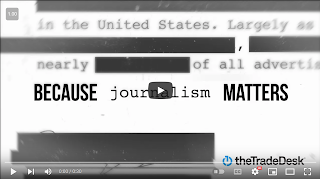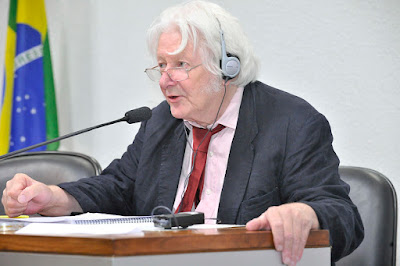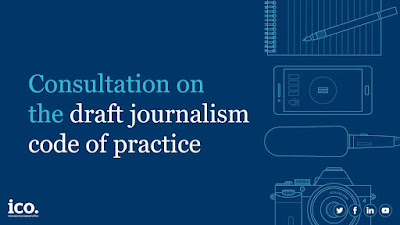 |
| Photo by RJ Peltz-Steele at O.R. Tambo International Airport, Johannesburg, South Africa, 2020 (CC BY-NC-SA 4.0) |
I read TPG every day. The website is funded by product placements and advertising, especially by credit card companies. One has to know that and take the content with heaps of salt. But I find TPG incomparable and nonetheless worthwhile for keeping up with the travel industry. And TPG advice has been especially helpful to me with advice on frequent flyer programs, for example, letting me know how much miles are worth on average in real dollars, so I know whether dynamic redemption tables are offering a good deal.
I also like some of the writers at TPG, because they set a tone that resonates with me, mixing a desire for industry accountability, especially for airlines, with a sense of humor and a lighthearted wonder of the world. Baltimore-based senior editor Benét J. Wilson (LinkedIn, Muck Rack, Twitter; see also Poynter) is especially fabulous; check out her wider world at Aviation Queen. I met Benét when she taught an outstanding program on advanced Google research tools for the National Freedom of Information Coalition (NFOIC), and thereby for my FOI Law students, who participated.
Last year, TPG launched an Apple app. I haven't used it, because I'm an Android user. I avoid Apple products because I've never been a fan of Apple intellectual property (IP) policies, which I mention because it's relevant here. Apple's limited submission to a right of repair for Apple smartphones is a step in the right direction; more on that momentarily. Anyway, TPG is working on the Android version of the app.
Among many features, the TPG app empowers users to manage their frequent flyer miles. TPG deep-links to data from sites such as that of American Airlines (AA), within users' accounts there. Obviously, this access improves the user's ability to maximize the value of their miles, recognizing good deals and, key, getting advance warning when miles are set to expire.
AA was not happy about that. The company accused TPG of violating the terms and conditions of the website and frequent flyer program, AAdvantage, thus, allegedly, interfering with AA's contract with its customers and infringing on AA IP. According to media reports, TPG sued AA in Delaware state court the week before last. I assume TPG sought declaratory relief; at the time of this writing, the complaint is not yet available from Delaware courts.
Then on Tuesday last week, AA sued TPG in federal court, in AA's home Northern District of Texas. The complaint alleged tortious interference with, inter alia, contract, unfair competition by misappropriation, (virtual) trespass, trademark infringement and dilution, copyright infringement, and violation of the Computer Fraud and Abuse Act.
For Law360, Jasmin Jackson filled in some background last week (limited access without subscription). Jackson reported that TPG initially sought AA's partnership in the app. AA declined. Since the app's launch, the two were discussing their differences. AA claimed surprise at TPG's Delaware filing and accused TPG of leveraging its position with litigation costs and compelling, AA said, the suit in Texas.
I see the case as a high-tech relation of the right-to-repair problem. AA is gaining a business advantage through obfuscation of customer data and control of information under the guise of IP protection. The same strategy is why I have to pay a high-dollar technician to tell me what's wrong with my car when the check-engine light comes on, and it's why 11% of McDonald's Taylor-made McFlurry machines are broken.
Customer frustration with companies' resistance to transactional transparency to maximize profit margins is manifesting in a wave of state legislation to protect consumers (see N.Y. Times July, Oct. 2021; repair industry website; U.S. PIRG). Massachusetts voters overwhelmingly approved a right-to-repair ballot initiative in 2020, despite a $25m no campaign by the auto industry (on this blog). Industry promptly sued, principally claiming federal preemption. The outcome of a 2021 trial in Alliance for Automotive Innovation v. Healy is still awaited, as the parties battle over a state motion to reopen trial evidence.There is a Fair Repair Act bill in Congress, even if its odds of passage are dismal. And the President last summer made overtures, however feeble, ordering the Federal Trade Commission to regulate to protect independent repair shops. Industry claims it needs exclusive repair rights to protect consumers from incompetent independent technicians. But a May 2021 FTC report located such industry claims somewhere between baseless and overstated.
The cause should be, and at least sometimes is, bipartisan. As I have commented many times, free markets depend on transparency, the free flow of information between business and consumer. So even economic conservatives should be able to get behind the right to repair. That bipartisan impulse has fueled congressional appetite for now pending bills to enhance antitrust in the tech sector. Apple's seemingly open-minded move to allow smartphone repair might have been calculated to head off antitrust enforcement.
Summons issued last week in the lawsuit filed by AA, which is American Airlines, Inc. v. Red Ventures LLC, No. 4:22-cv-00044 (N.D. Tex. filed Jan. 18, 2022).
UPDATE, Nov. 10: The parties settled on undisclosed terms on November 4, 2022.










